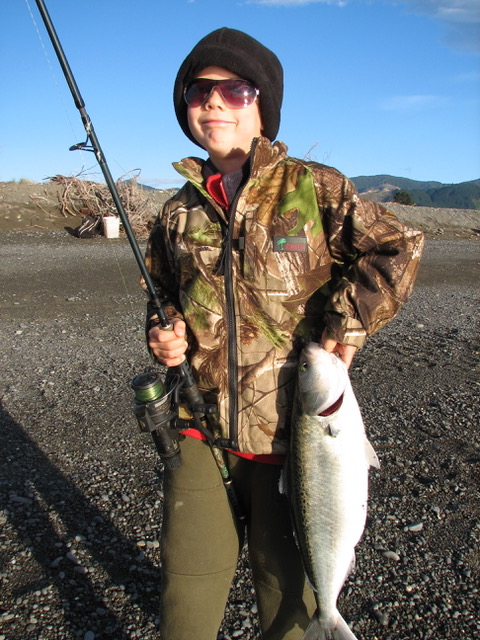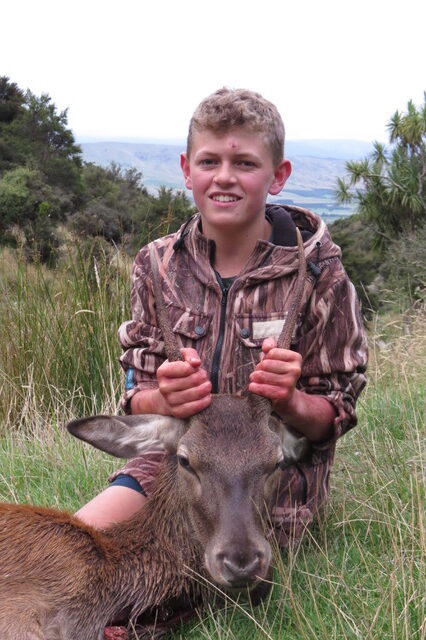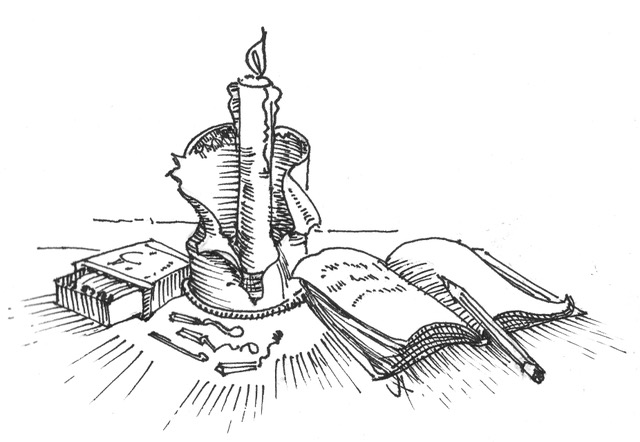An opinion by Tony Orman
New Zealand’s youth suicide rate is the second worst in the developed world at 14.9 deaths per 100,000 adolescents. This rate is more than twice the average among the 41 OECD countries surveyed (6.5 deaths per 100,000 adolescents) so says Google. New Zealand is second to Korea.
Why is this tragic statistic happening in New Zealand with just 5 million people and the “wonderful, clean, green, beautiful environmental” image as often depicted?
Frankly New Zealand has lost its way as a society ever since the no-liberal experiment termed “Rogernomics”, was unleashed on New Zealand’s 4 million people in 1984 when the David Lange-led government was elected.
The year “1984” was a remarkable coincidence, for George Orwell wrote his masterpiece novel of the same name in which people were subservient to Big Brother government.
Orwell’s prophetic novel may in detail, not have yet come about. But there is little doubt the 2020s now represents hard nationalism, a loss of democracy, social division, frustration and cynicism with xenophobia, homo-phobia, hate speech and at times hatred adding up to confusion.
Today there is fragmentation and division—and a conflicting contradictory mess of fake news, true news and self interest groups baying for the biggest slice of the cake. Selfishness and greed are paramount.
Is it any wonder teenagers are confused and bewildered?
It’s not just teenagers who have lost their way. People have, society has.
Labour Day Farce
Allow me to explain. We still celebrate Labour Day with a public holiday on a Monday in October to celebrate the 40 hour working week. But here’s the really ironic twist – for many, the 40 hour working week now doesn’t happen – it’s been eroded – it’s history.
Yet I recall back about 1970, politicians said to prepare for earlier retirement and more leisure time in the Autumn of our years. However something has reversed that and it probably began in 1984 with Rogernomics.
And because of the burgeoning cost to government of superannuation, the occasional talk surfacing is to extend the retirement age to 67 or even 70. But it’s a double edged sword. At the other edge, for school leavers and teenagers, job opportunities will diminish because older people may be forced to carry on working because of an ever increasing cost of living.
Most politicians seem not to have comprehended that the State will have to pay unemployment benefits to youngsters unable to get jobs.
Self Esteem
And the impact is not positive on many youngsters. The social impact can be devastating with the self-esteem of many teenagers plummeting. That then manifests itself in a disgruntled youth sector and sometimes aggressive behaviour and crime – at great cost to the country.
And tragically even suicide as shown by NZ’s abnormally high youth suicide rates.
Successive New Zealand governments have slyly eroded our standard of living in economic terms so that a household can no longer exist on one average income but needs at least two average incomes to sustain a living for two adults and two children. The situation is aggravated by a rampant consumer-driven economy spawned under the free market neo-liberal Rogernomics mantra.
And have the new wave of “liberated” mothers got it wrong? As a youngster my father worked, my mother was at home. Should today’s liberated mothers mock their mothers for being the vital home manager?
The trouble is while the modern woman may delude herself she’s alive and active being “busy”, the reality is she (and her husband) are in danger of being exhausted from being workaholics with inevitable burnout. Weekends can become recuperation rather than leisure.
I’m not against someone working if they want to, but if they put themselves under severe stress and have no leisure time and particular for the young family, what’s life really about?
And severe stress undermines health – down the track – more cost to the State.
Similarly the right to retire at age 65 (or 60 as it used to be in New Zealand) should be an option. Perhaps we need a massive culture shift not only collectively but individually??
What we need is to restore the 40 hour working week and then with a clear conscience, celebrate it honestly.
As We Once Were
Look at New Zealand today and compare it to yesteryear.
One of the paradoxes is that while our economic standard of living measured by GDP and material goods such as washing machines, television sets, mobile phones and cars is high, we have lost the art of living and attaining happiness.
In the 1970s New Zealanders had an empathy with the land, were outdoor people, the Kiwi face was weather-beaten and smiling, skills were muscular and the work ethic was overall high and productive. Our heroes were the likes of Ed Hillary and Colin Meads, Bert Sutcliffe and Yvette Williams.
Each household drew sustenance from the land or even the home vegetable plot.
Technology and changed social attitudes have eroded that. We are becoming a weaker society, fragmented by division and self interest, intolerance while physically people have succumbed to the weaknesses of an indoor society where weekend recreation is a trip to the supermarket.
People have developed the flabbiness of a sedentary society.
Teenagers lack confidence and self esteem.
It’s often disguised by a veneer of arrogance and aggressiveness and manifesting itself in teenagers stealing cars and sadly and horrifically even committing murder.
The value of the outdoors is being neglected.
Outward Bound
I did Compulsory Military Training (CMT) which almost every 18 year old undertook back in the 1950s. I went into the three month course, grizzling but came out smiling. It had only positive benefits.
It instilled self esteem and made for better apprentice citizens and we were physically fit.
Why not reinstate CMT but adapt it to be like an Outward Bound course?
There are a multitude of tasks that trainees could undertake, tasks which bureaucracies seem unable to cope with. I think of the inept Department of Conservation and the need to maintain tracks and huts on public land, combat the invasion of wilding pines which DOC has sat on its hands over, the waste left after clear felling of pines which could be collected and cut into firewood for needy families and pensioners and a host of restoration projects of wetlands and native trees.
Along the way trainees – both male and female – would be taught firearm skills and safety and respect for firearms, instead of the phobic fear that politicians and even some prime minsters can have.
Teach youngsters trapping of possums and the utilisation of the resource for meat and fur. Trap predators instead of using toxic, ecosystem poisons.
Teach fishing and bushcraft skills – and more outdoor related education.
Maniacal Passion
But basically governments have failed because of their myopic pursuit of the dollar, based on GDP. Uncontrolled economic growth is a fallacy. Governments have pursued growth with a maniacal passion and no foresight or vision.
“Maximum growth – we need more people” has been the mantra.

PM John Key – short-sighted?
John Key’s vision as a tourism minister was short-sightedly “more and more tourists” instead of focussing on fewer but quality affluent tourists that give added value. That was his vision for dairying too with a favouritism to corporate farming with unbridled expansion into dry rainfall areas.
Consequently water quality suffered with dangerous increasing nitrate levels while irrigation demands depleted the aquifer and over flows.
The system is flawed concentrating under GDP solely on growth and more and more dollars. What is needed is ditching GDP and implementing Genuine Progress Indicator (GPI) that considers three factors – economic, social and environmental.
The youth of the country suffer more than any other sector.
We should be encouraging young New Zealanders into the outdoors. But sadly government priorities and policies don’t give incentive but even spawn disincentives by way of policies. One impediment to access to the outdoors is increasing foreign and corporate ownership of New Zealand farms resulting in locked gates in contrast to once when family farms willingly gave access.
Dying Rivers
Rivers that youngsters once swam and fished in, have had flows depleted by irrigation for corporate dairying. In turn, nitrates and other pollution have fouled water quality.
Alarmingly the majority of NZ’s lowland rivers are rated unfit for swimming.
New Zealanders are not getting outdoors. Young New Zealanders are losing their connection with the outdoors with urbanisation while youth obesity, mental health and suicide rates are unacceptably high for a country of just 5 million people.
For youngsters the outdoors used to be a readily available indispensable class-room. The sweet success of catching a trout or perhaps a kahawai, shooting a rabbit, climbing a mountain or canoeing a river were personal achievements which importantly built self-esteem in youngsters.

A kahawai caught by a youngster – a big thrill for him
Besides tramping, fishing and hunting encourage observation, analytical reasoning and a respect for Nature. And often a lesson was that to achieve in the outdoors, you have to sweat and slog it out. A healthy work ethic.
Egalitarian
In New Zealand’s egalitarian society, anyone can fish or hunt. It was a legacy the first European settlers instilled into the new colony in order to escape the feudal system of Britain where for example, the best trout fishing, deerstalking or pheasant shooting is the preserve of the wealthy minority.
In effect, in New Zealand the kid down the street may go trout fishing on equal terms and rights as the city’s top solicitor, doctor, baker and the candlestick maker or even the Governor General or Prime Minister. Indeed at least two former Prime Ministers have been keen fishermen. The late Jack Marshall a National government PM, was a very keen trout fisherman. The much respected Labour government PM Norman Kirk was a hunter in his younger days and an ardent fisherman.
New Zealand could do with a few more practical keen fishing-hunting persons – male and female – in Parliament.
A Horizon survey of sporting participation rates back in 2012 showed fishing had more than five times more people participating than rugby. Twenty-six percent enjoyed fishing while just five percent played rugby.
Fishing v Rugby
When it came to “getting off the couch”, 25.5 percent of adult men and 18 percent of women fished while with youth, about 35 percent went fishing.
Yet government, society and media gave far more attention to rugby and its sedentary sofa spectators than active participation in outdoor recreation such as fishing.
The Council of Outdoor Recreation Associations chairman Andi Cockroft said New Zealanders were being duped by an “imagined Godzone self portrayal”. He said the outdoors is a great playground for youngsters to learn observational and outdoor skills, to get physical exercise and mental stimulation and good values, but were being eroded by development, exploitation and bureaucratic policies.
“The fact is we are not serving young people well and government policies are blocking access for the public to the outdoors,” he said.
Policies of government often are factors. There are now dirty rivers where rivers like Canterbury’s Selwyn once a fully flowing, clean clear river full of trout, is now algae infested and virtually biologically dead. Many other rivers have summer warnings of toxic algae due to depleted flows and nutrient leaching.
Toxic Policies
Other government policies adversely impacted directly or indirectly on the public’s outdoors. The widespread use of poisons such as 1080 was not only unjustified but ecologically disruptive and poisoning public lands.
Who wants to tramp, fish or hunt in an area top dressed with toxic baits and smelling of death?
An open door policy of successive governments over decades to encourage foreigners to buy farms and in particular high country and farm land often results in locked gates and denials of access. Saltwater fisheries mis-management gave commercial fishing companies interests far higher ranking than recreational fishing.
Yet in economic terms, recreational fishing stimulates over a billion dollars a year in economic activity.
Governments’ Ignorance
The list goes on and on, where governments out of ignorance, have let the public and particularly youngsters, down by policies despoiling of the outdoors.
The solution to helping young Kiwis out of their predicament is a recognition of the priceless value of the outdoors whether it be fishing, hunting, tramping or other recreation, to youngsters.”

Teach youngsters respect for firearms and hunting skills
From once being an outdoor-minded people, New Zealanders have become sedentary, stressed, uncertain and often lost. The youth statistics mirror that.
It should not be forgotten that today’s youth are tomorrow’s adult citizens.
Investing in the well-being of youth makes for a better society in the years ahead.


If you have reading this, it is likely that you already have a strong interest in the outdoors? You will understand the benefits of participating in a n outdoor recreation in a natural environment. I was lucky as my father introduced me to fishing and hunting at an early age. In my late teenage years, away from home, one or two other adults also gave their time freely to encourage me. skills, but above all – it was fun. My energy of youth was channeled in a very positive direction. Thank goodness.
What a major work Tony. It deserves wide circulation. As a former Outdoor Education teacher I saw the incredible benefits of getting city youngsters out into the wide open spaces (and the bush). It provided the first real challenges for many. It also fostered an appreciation for the important things in life other than money. Sadly the Health and Safety requirements for teachers to comply with mean that many schools do not have staff who can front up with the handful of tickets now required to take kids out of their cotton wool inside schools. As Tony points out the Neo-liberal mentality has a lot to answer for.
Why the fuss about government’s camps for young offenders? It’s a good, positive idea. Of course the ‘woke’ media term them boot camps. Government erred in calling it military training; that opens it up for criticism. Model the youth camps on Outward Bound.
Tony Orman has written a classic statement of where our country is at, and indeed, where the whole of our planet’s society is at in one way or another. I know young people who go to school only if they feel like it on the day and who spend their time in their room shouting gibberish at their online contacts.
I am reminded of a quote from the Guardian Weekly of 30 years ago; “Society has lost its points of reference. Everything’s upside down It’s exhausting”. Little wonder there are so many youngsters lost in the modern world. Anything that encourages them to look at the positive possibilities in life must be worth trying and if it gets them outdoors, so much the better.
Several years ago, I came across a guy called Paddy .. who had spent most of his life working with troubled youth.
Paddy told me his experience had taught him .. the most transformative thing he could do with troubled young people .. was to give them a full immersion in nature.
He took young people on what he called “a journey”.
They had to leave everything behind .. their addictions, their technology, the lot .. carry everything they needed for survival (clothes, food, shelter) on their backs .. and he took them on a journey for a week or so.
A week is long enough to strip everything back. You overcome your addictions .. you have to eat and drink .. and you can’t survive without shelter, and sleep.
They came back different people.
Those of us who hunt, fish, tramp, climb, etc know what Paddy meant.
The Japanese have a term “Shinrin-Yoku”, which refers to the practice of forest bathing (basically, just being in the bush) – a proven way to lower heart rate and blood pressure, reduce stress hormone production, boost the immune system, and improve overall feelings of wellbeing. A study by the Center for Environment, Health and Field Sciences in Japan’s Chiba University measured physiological effects on 280 subjects in their early 20s. “Forest environments promote lower concentrations of cortisol, lower pulse rate, lower blood pressure, greater parasympathetic nerve activity, and lower sympathetic nerve activity than do city environments,” the study concluded.
I know many young people who go outdoors, and hunt – and I would venture to suggest, they’re generally more mature, well-rounded, and enjoy better both physical and mental wellbeing – than their average city-dwelling peers.
Above all else, those of us who “go bush” just know .. it’s good for your soul.
Captivating reading Tony, all so true, i.e Labour Day Farce, a dream long gone.
In short.
Toxic Police’s and Government Ignorance, Fragmentation and diversion, what if any chance, and not only our youth have of ever experiencing egalitarianism again, Sadly not going to happen.